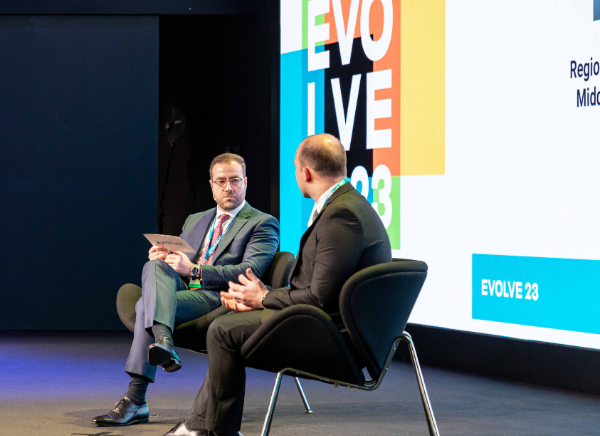23 December 2024, Mon |
5:45 AM

Exclusive interview with Karim Azar, Regional Vice President – Middle East & Turkey – Cloudera
What was your main goal through Evolve Dubai, and what response did you get from the Event?
Through Evolve Dubai, our aim was to reach out to tech industry leaders and IT decision-makers, showcasing the power of data. We also highlighted the importance of a data-driven approach and the significance of a hybrid cloud model in order to achieve long-term goals.
The overall event was extremely successful, with over 380 attendees at the event. Moreover, we had insightful panel discussions with our partners and break-out sessions where people had choices between three interconnected tracks.
The event seemed to generate a very positive response among attendees, and even for us, as a service provider. While Evolve acted as a platform to educate end-users about the power of hybrid data, it also allowed us to interact directly with the end consumer to learn what they’re looking for.
What were some of the key discussion points during the Evolve Dubai breakout sessions?
During the breakout sessions, attendees were able to choose from three interconnected tracks, including Modern Architecture, Transformation and Discovery Labs.

The Modern Architectures session gave attendees an opportunity to discover and explore innovative data solutions that would aid in driving measurable results.
In the transformation sessions, attendees interacted with data professionals and heard experiential stories about transformation from business processes to an entire industry.
Lastly, the Discovery lab gave individuals the chance to live “The Art of the Possible” with the Cloudera Partner Solutions and Cloudera Data Platform (CDP).
What challenges did companies face when shifting to the cloud, and how did you address them at the event?
Cloudera conducted a study in the EMEA region to understand the challenges companies face during cloud migration and data analytics. The study revealed that the primary obstacles that hinder organizations from migrating to the cloud are related to IT complexity and integration, which account for 60% of the respondents’ concerns, according to IT decision-makers (ITDMs) in the Middle East.
Additionally, 58% of respondents expressed cybersecurity worries linked to non-compliance, while 49% identified data governance and compliance challenges as significant barriers. Another notable hurdle, as indicated by 50% of the participants, is the apprehension regarding the real-time processing of large datasets, which impacts the performance aspect of cloud migration.
Due to the results revealed from the study, we were able to promote ideas and solutions that express the idea that with modern data architectures, companies can drive more matter from their data and optimise their cloud expenses.
What is next in store on your journey to educating people about the capabilities of a data-driven culture?
Becoming a truly data-driven organization takes time, and creating a hybrid multi-cloud infrastructure to leverage all data can be a challenging process even for the most experienced enterprise IT teams. But in today’s hyper-competitive environment, it’s essential to develop this capability as soon as possible. To become true data-driven companies, must realize that an ongoing commitment is required.
Biggest problem is mostly not technology itself, but data strategy and organization. Organizational change is needed in many cases to establish a data driven culture and a fundamental new way of working. That’s causing challenges. So it is imperative to adopt a change management system that promotes data-driven decision making and incentivizes employees at all levels to work towards this goal, with evidence of success.